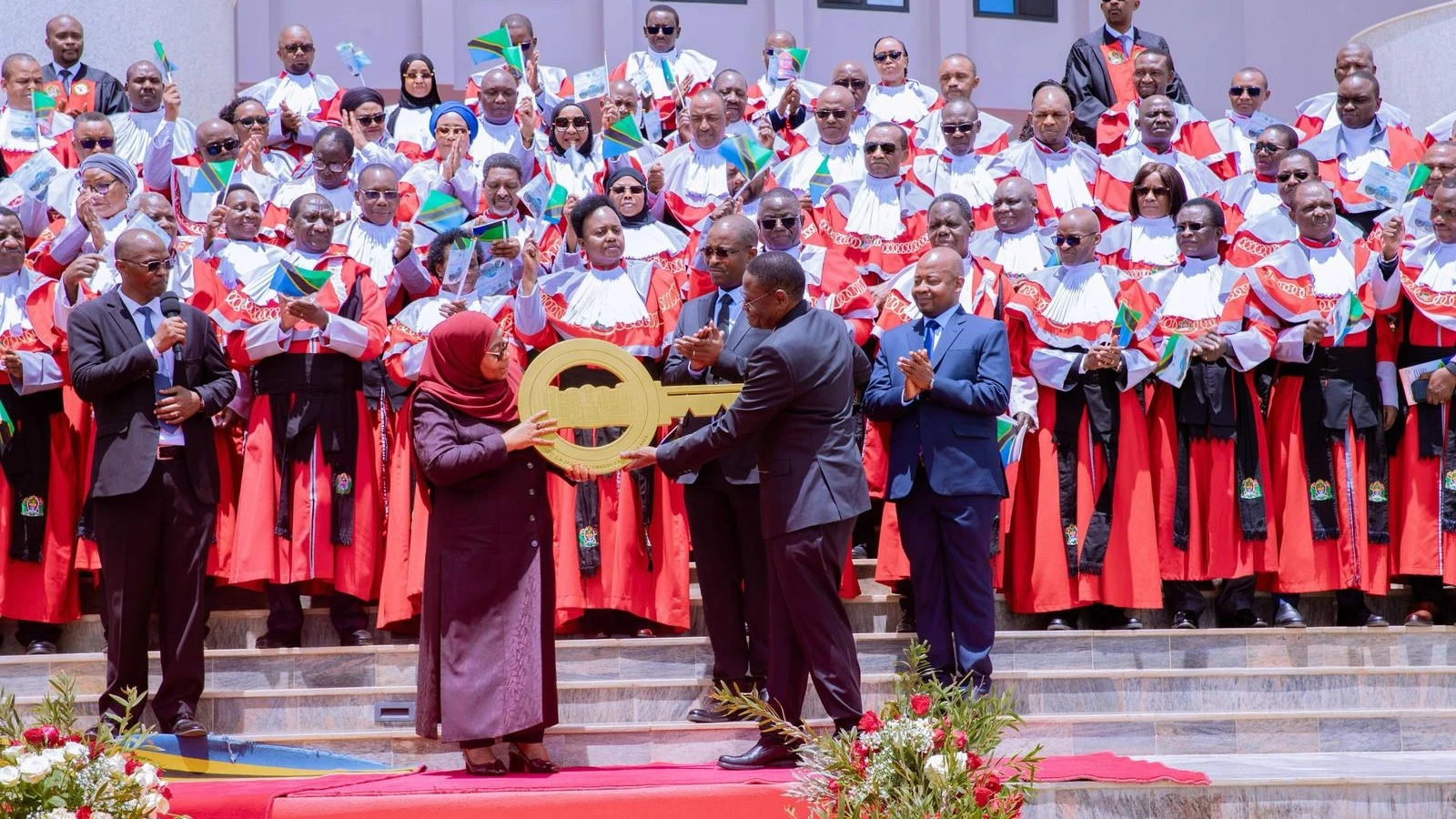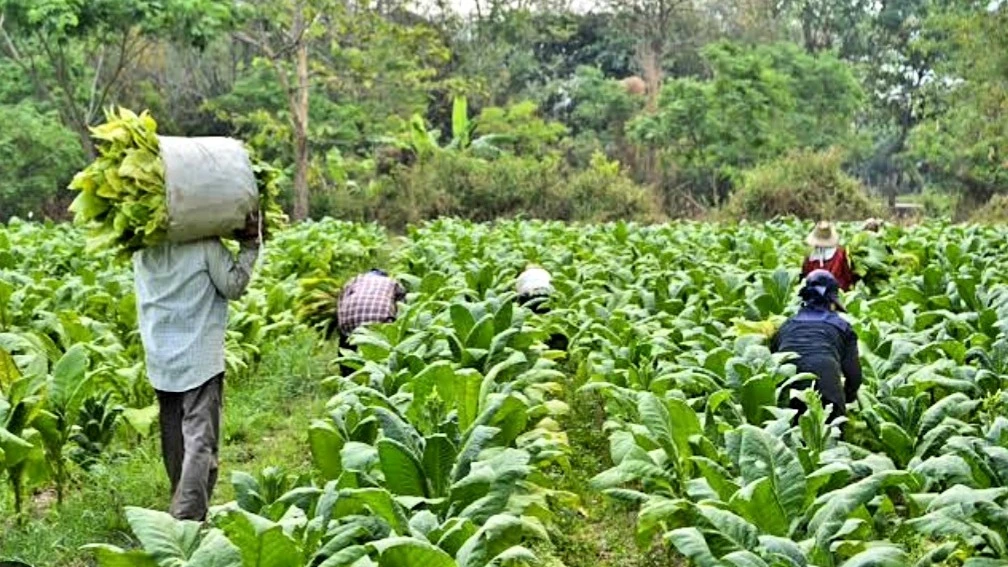Farmers, stakeholders in Morogoro praise project for boosting sustainable agriculture

FARMERS in Morogoro Region have hailed the execution of the potentials for agroecological practices in East Africa with a focus on circular water-energy-nutrient systems (PrAEctiCe) project, which has made significant strides in promoting sustainable farming practices and environmental conservation.
The initiative, funded by the European Union (EU) under the potentials for agro-ecological practices in East Africa with a PrAEctiCe project, is set to revolutionise agriculture by creating a more sustainable, resource-efficient farming system that reduces waste and minimises environmental harm.
It integrates ecological farming techniques with poultry, fish farming, and horticulture, is being lauded for its innovative and resource-efficient approach to agriculture.
At an Open Day event held recently at the Sustainable Agriculture Tanzania (SAT) farmers’ training centre at Vianzi village in Mvomero District, Morogoro Region, over 100 farmers, students and agricultural stakeholders from various parts of Morogoro Region had the opportunity to witness the practical application of the integrated farming approach.
The tour featured, how nutrient-rich fishpond water, enriched with chicken manure, improves crop growth, the aeration process that maintains optimal fish health, the floating solar panels, which not only generate electricity but also create shade for fish, optimizing space utilisation and the thriving maize fields, benefiting from sustainable irrigation techniques.
Saulo Lumwesa, a local farmer from Mvomero District, acknowledged the challenge of accessing organic seeds but recognized the promise of integrated farming for boosting productivity.
“We need to work on increasing the production of organic seeds and also create more markets for organic products,” he said.
One of the standout features of the PrAEctiCe project is its circular approach to resource use. By recycling chicken manure to serve as fish feed and utilising fish waste as natural fertilizer for crops, the project has enabled local farmers to reduce production costs while simultaneously boosting agricultural productivity.
The symbiotic system minimizes waste and maximises resource efficiency, which has been especially beneficial to smallholder farmers looking to improve yields sustainably.
Mwajuma Kizoka, also a local farmer said: “I heard that in organic agriculture, nothing is wasted, and I wanted to see it for myself. Now I’ve witnessed how even chicken manure is used to enrich pond water. I want to go back and encourage other farmers to practice organic agriculture.”
Water conservation has also been a key focus of the PrAEctiCe project, with farmers adopting techniques like mulching to reduce water usage during irrigation. Not only has the approach lowers costs, but it also contributes to the preservation of the region’s precious water resources, supporting long-term sustainability.
Through the combined efforts of local farmers, SAT and other project partners, PrAEctiCe has become a leading model for sustainable farming in the region. The project demonstrates how ecological farming practices can help boost productivity, protect the environment, and build resilience against climate change, offering a blueprint for other regions looking to embrace more sustainable agricultural systems.
Student attendees such as Maua Juma from Sokoine University of Agriculture (SUA) expressed their newfound appreciation for organic farming methods.
“I used to think organic farming was expensive and not profitable, but after seeing the practical examples today, I realize how a small plot can be used to engage in multiple farming activities that not only earn income but also protect the environment,” she said.
Dr Ramandhan Sanganya from the Muslim University of Morogoro (MUM) called for greater collaboration to expand organic farming practices across Tanzania.
“We must work together to promote organic farming and ensure the availability of organic seeds for all farmers,” he said.
Angelina Mbele, the crop manager at SAT explained the ongoing research, which compared the yield of vegetables such as onions and Swiss chard under different irrigation sources: fishpond water enriched with chicken manure, fishpond water with regular fish feed and standard water.
Results showed significantly higher yields with nutrient-rich pond water compared to plain water, though differences between manure-enriched and feed-enriched pond water were minimal, depending on crop nitrogen preferences.
She said the PrAEctiCe project makes waves not only in Tanzania but across the East African region, providing farmers with the tools they need to create more resilient, sustainable agricultural systems.
By integrating traditional knowledge with modern scientific methods, the organisation is leading the way in developing farming models that mitigate the effects of climate change while improving food security and economic stability.”
Godfrey Lukwale, SAT livestock manager further elaborated on animal health management and the interconnectivity of system components, demonstrating how this closed-loop model ensures nothing goes to waste.
He said central aspect of the project’s success is the integration of a circular water-energy-nutrient system. This innovative approach allows water from fish farming to be repurposed as fertilizer for crops, creating a sustainable, closed-loop system that benefits both the environment and the farming community.
The efficient use of resources helps mitigate the effects of climate change and promotes resilience within agricultural practices, ensuring that the region's farming systems are more adaptable to future environmental challenges.
Morogoro regional agriculture specialist, Evance Gambishi commended SAT for the initiatives which backs the government’s efforts to transform the agriculture sector and fight poverty.
He also commended the organisation for the open day which has brought together farmers, livestock keepers and stakeholders from various parts to further strengthen collaboration in the fight against climate change by promoting agroecological practices.
He said authorities in the region were working hard to promote and support sustainable farming that prioritizes environmental conservation.
He noted that organic farming protects soil and land, cost effective and promotes a healthy society.
Gambishi encouraged farmers in the country to embrace agro- ecological practices in order to produce enough and tasty foods while also protecting the environment.
He said that the agriculture sector is currently facing various challenges due to climate change, something that needs more joint innovative and sustainable practices to overcome them.
He noted that through research, training, and the adoption of ecological farming practices, SAT helps to build a more resilient agricultural landscape that benefits both farmers and the environment for generations to come.
Top Headlines
© 2025 IPPMEDIA.COM. ALL RIGHTS RESERVED

























